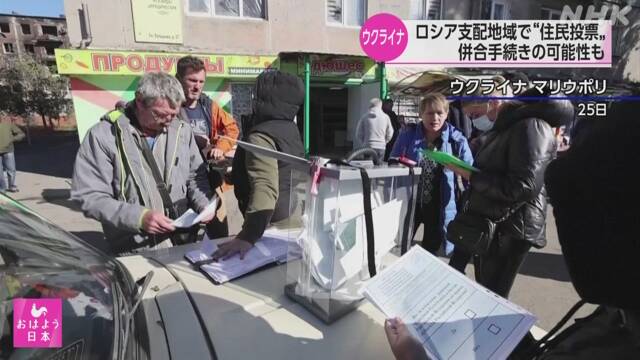In Ukraine, in the areas controlled by Russia in the eastern and southern parts of Ukraine, activities that are said to be "referendums" are being forced, and Russia is prepared to annex it based on the results of the votes, but the Ukrainian government says, "The fake referendum is legal." It makes no sense," and has made it clear that he is aiming to recapture the territory.
As Russia continues its military invasion of Ukraine, pro-Russian factions have been conducting what they call a "referendum" from the 23rd of this month in the Russian-controlled areas in the east and south.
In connection with this, Russia's Foreign Minister Lavrov said at a press conference on the 24th that a Russian reporter, bearing in mind the annexation of the region, asked, "If our country is attacked, would that be grounds for the use of nuclear weapons?" When asked about the possibility of using nuclear forces, he said, "I do not intend to make pessimistic predictions, but we have basic principles of nuclear security that apply to all Russian territories." He did not explicitly deny his sexuality.
In response, the Ukrainian government strongly opposes Russia's efforts to create a fait accompli toward unilateral annexation.
In an interview with NHK, Deputy Defense Minister Marial said, "Russia's only option is to fabricate a referendum, but legally it makes no sense at all." It is the national territory of Japan and must be returned," he said, making clear his stance of aiming to recapture the territory.
The pro-Russian faction is planning to carry out activities that it is a "referendum" until the 27th, and the Russian state-run TASS news agency reports that the annexation procedure may be carried out on the 30th after the end. The situation is tense.
On the other hand, Russia's Putin administration has decided to mobilize reserves, but there are a series of activities in various parts of Russia to protest the mobilization.
The government has also taken steps to consider domestic public opinion, such as announcing a policy to postpone the convocation of students.

